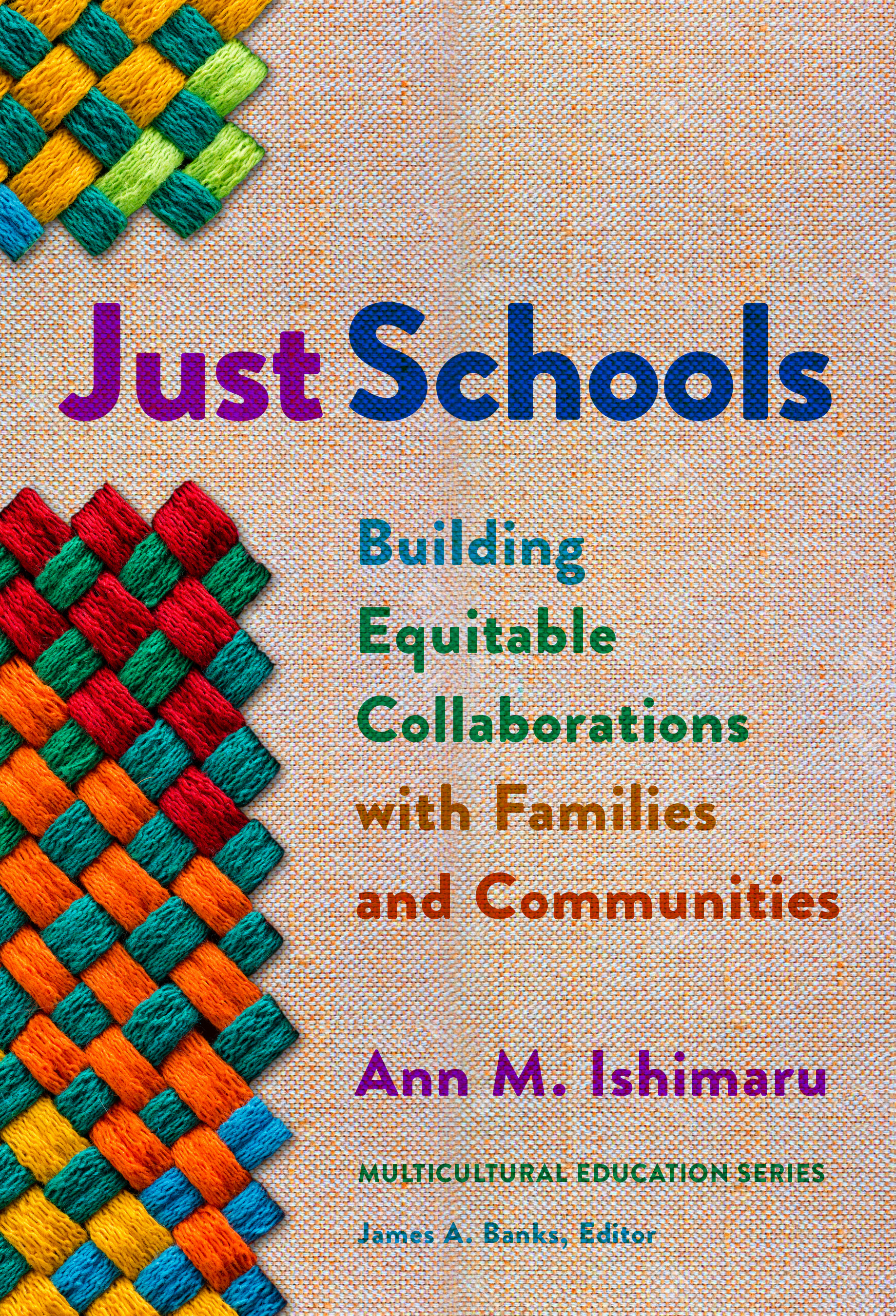reviewed by Kathryn Nakagawa – May 19, 2020
 Title: Just Schools
Title: Just Schools
Author(s): Ann M. Ishimaru
Publisher: Teachers College Press, New York
ISBN:9780807763193, Pages: 216, Year: 2019
“Family-school-community partnerships” have often been envisioned as a way of improving schools and educational outcomes. Partnerships and “family engagement” are promoted through local, state, and federal policies to ensure that parents and other stakeholders have a meaningful role in schools, such as overseeing budgets, approving curriculum, and implementing school reform policies. However, in practice, researchers have found that rather than a partnership, the relationship between families and schools is often strained and unequal, with parents framed as problems rather than partners. This is especially true for groups that Ann M. Ishimaru terms “nondominant families,” and in her excellent book Just Schools: Building Equitable Collaborations with Families and Communities, she provides a roadmap for how to transform and reimagine family-school-community relationships in significant and important ways.
Ishimaru begins her book by situating it within this particular historical moment, where the underlying racism in our institutions has become more acceptable given current failures in political leadership. In this moment, individual interactions, such as how parents, educators, students, and community members talk with and work together across educational sites, are critical to moving schools forward in equitable ways. She highlights underlying assumptions in much of the work about parent involvement and defines and uses specific terms (such as “nondominant,” “collabetition” and “survivance”) to provoke an understanding of taken-for-granted ways of thinking and speaking. Drawing on critical race theory as well as decolonizing theory and theories of settler colonialism, Ishimaru organizes her book around four guiding principles: “(1) begin with family and community priorities, interests, concerns, knowledge and resources; (2) transform power; (3) build reciprocity and agency; and (4) undertake change as collective inquiry” (p. 2). She describes the research and theory in which these principles are grounded and provides specific examples of what they look like in practice throughout the book. She follows the principles in her research by weaving her own story throughout the book to show how her family history and her experiences outside of being a researcher inform the work she does. Ishimaru is a yonsei (4th generation) Japanese American whose parents were incarcerated during WWII. She is currently a professor at the University of Washington but is also a former elementary school teacher and community organizer and, importantly, has navigated schools as a parent. Her stories of frustration with the educational system, her sense of injustice from her family’s history and her own observations and insights as a parent, teacher, and community organizer provide a backdrop of honesty and empathy to her research and proposals for transforming family-school-community relationships.
Read the full review at Teachers College Record
